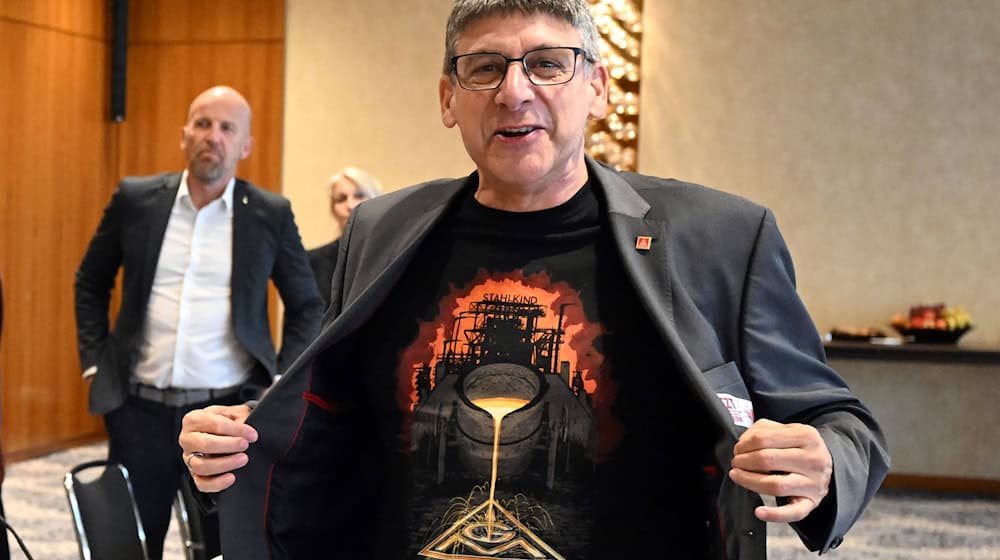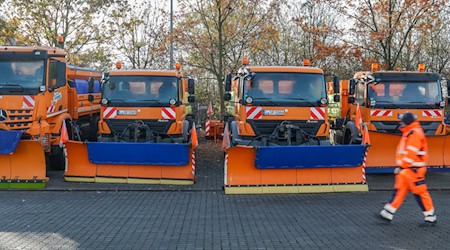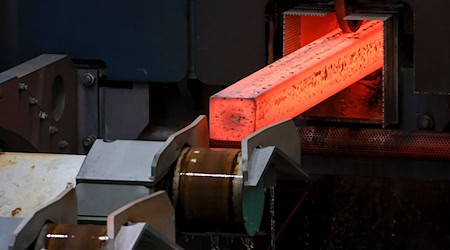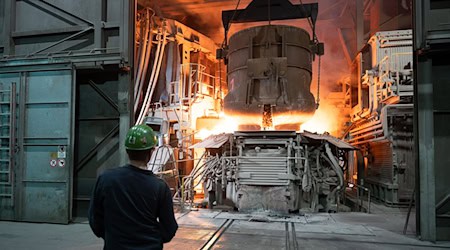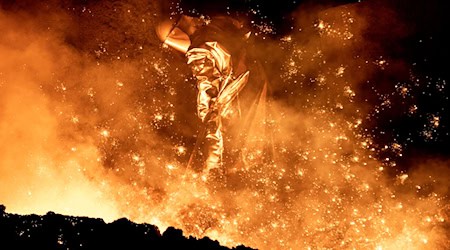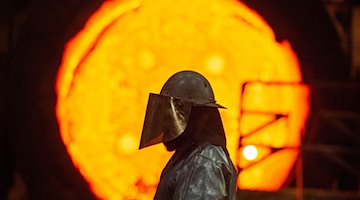Wage negotiations have begun in the steel industry, which is suffering from a weak economy and cheap imports. The first round was held in a joint meeting in Düsseldorf for the "Northwest" and "East" collective bargaining areas with a total of around 68,000 employees.
According to the IG Metall trade union, the employers have not yet made an offer: "Unfortunately, we have not heard anything from the employers today about how they intend to meet their responsibility for quick and fair solutions," said Knut Giesler, head of negotiations, according to a statement. However, they have announced this for the second negotiation on Friday. The talks will then continue in Düsseldorf.
The peace obligation ends on September 30. After that, warning strikes are possible. Negotiations for Saarland will not start until mid-November.
IG Metall wants inflation compensation
In the run-up to the talks, IG Metall had emphasized the "extremely difficult situation" in the steel industry. The union therefore entered the negotiations without any specific wage demands. However, it emphasized that inflation must be compensated for and employment secured. According to Giesler after the talks, the unspecified demand was a great leap of faith on the part of the employees. However, the expectation was also that they would not end up with less money in their wallets.
The steel employers' association had rejected the demand for wage increases. "Even if it must be acknowledged that the union is obviously aware of the dramatic situation in the German steel industry, the demand for a pay rise exceeds the possibilities of our industry in the current economic situation," it said.
Costly energy and high US tariffs
The German steel industry is suffering from the crisis in customer sectors, especially the automotive industry. Added to this are increased energy prices, cheap imports from China and the costs of converting to more climate-friendly steel production. High tariffs on steel imports to the USA are also causing problems for the industry. Industry heavyweights such as Thyssenkrupp are planning to cut thousands of jobs.
Copyright 2025, dpa (www.dpa.de). All rights reserved

